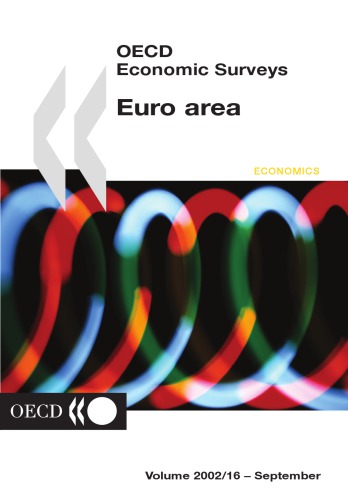

Most ebook files are in PDF format, so you can easily read them using various software such as Foxit Reader or directly on the Google Chrome browser.
Some ebook files are released by publishers in other formats such as .awz, .mobi, .epub, .fb2, etc. You may need to install specific software to read these formats on mobile/PC, such as Calibre.
Please read the tutorial at this link: https://ebookbell.com/faq
We offer FREE conversion to the popular formats you request; however, this may take some time. Therefore, right after payment, please email us, and we will try to provide the service as quickly as possible.
For some exceptional file formats or broken links (if any), please refrain from opening any disputes. Instead, email us first, and we will try to assist within a maximum of 6 hours.
EbookBell Team

5.0
38 reviewsThe euro area experienced a marked slowdown in economic growth from 3.5 per cent in 2000 to 1.5 per cent in 2001, prompted by a series of shocks common to the OECD area including the effects of the September 11 terrorist attacks in the US and a surge in oil prices in 1999-2000. However, an economic recovery is now underway and should gain momentum during the course of 2002. The labour market continues to show remarkable resilience. Inflation has remained above the 2 per cent target level since early 2000, but so far this does not appear to have compromised the monetary policy credibility of the European Central Bank. There is a need for further financial market integration with remaining entry barriers addressed. The current structure of regulation and supervision needs to be reviewed with co-ordination processes streamlined. This should help foster progress towards structural reform and help in absorbing country-specific shocks more smoothly.